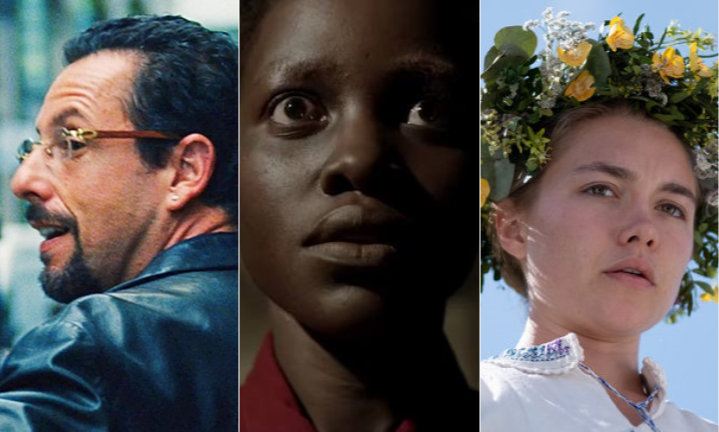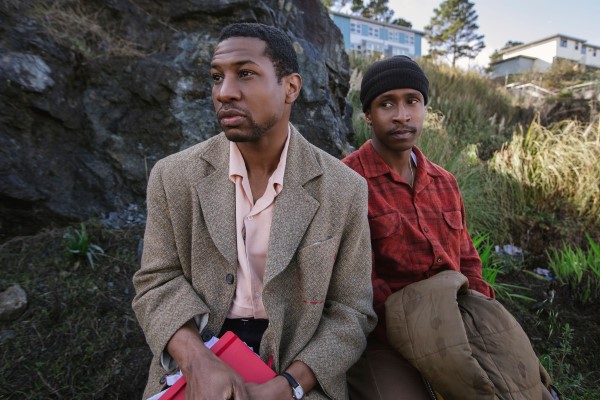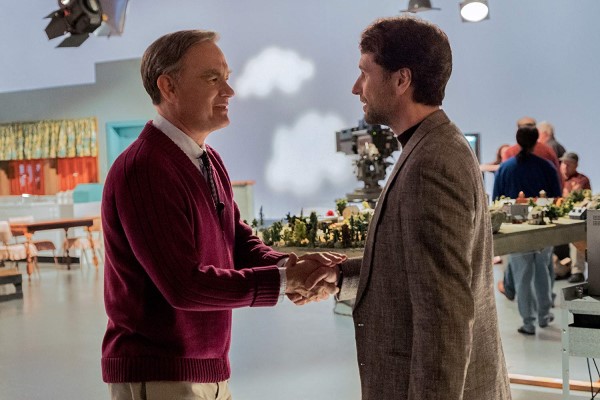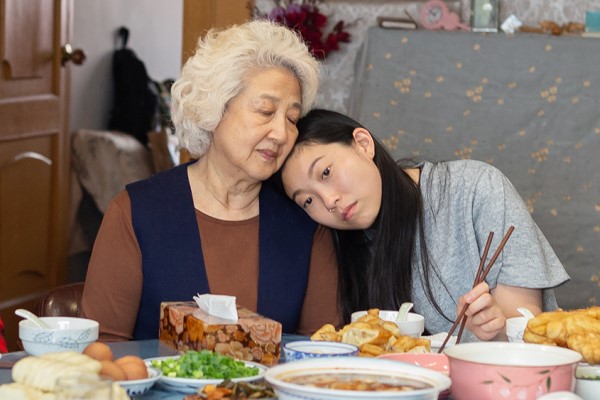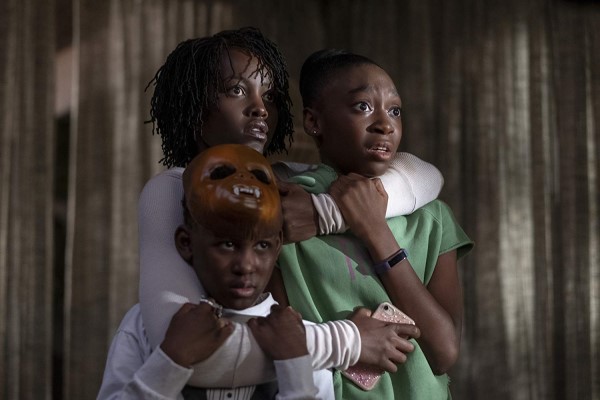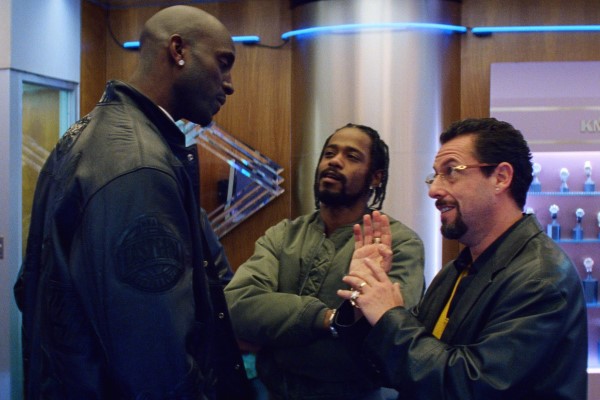Well, here I am, back to 15. It was that kind of year for movies. Ten didn’t seem like enough.
Here is where I offer the usual caveat: This is not a definitive list by any means. These may not necessarily be the “best” movies that hit theaters in the last year, but they were certainly the ones that I liked the most. For example, Greta Gerwig’s Little Women is a great film and I think you should go see it. But there were other films I connected with more. In conclusion, go see Little Women.
If you’re still reading by now, here are my Top 15 Movies of 2019:
15. Under The Silver Lake. Few people reading this will have even heard of Under the Silver Lake, because indie distributor A24 effectively buried it, for reasons that remain a mystery to me. But watching all 2 hours and 20 minutes of it is all that is necessary to understand why it received such a lukewarm reception at the Cannes Film Festival. The “protagonist” (if you can call him that) is an unemployed deadbeat who, rather than try to scrounge up the necessary cash to avert his impending eviction, chases down an alluring young woman who flirted with him before vanishing from their apartment complex in the middle of the night. It’s an L.A. neo-noir that unravels a web of far-reaching (and far-fetched) conspiracies — from a nude owl-woman who murders people in their homes in the dead of night to a prolific songwriter who pulls back the curtain on the cynical truth behind generations of popular music — that ultimately prove unfulfilling because the truth is far simpler but more difficult to stomach.
Writer(s): David Robert Mitchell
Director(s): David Robert Mitchell
14. Dolemite Is My Name. The best decision I made ahead of watching Dolemite Is My Name was to watch the original Dolemite, a 1975 no-budget blaxploitation film that was based on the alter ego of stand-up comedian Rudy Ray Moore. I could run through a laundry list of the film’s problems — from low production value to terrible acting to a nonsensical plot — but ultimately none of that matters. Dolemite Is My Name, which introduces us to Moore as a record store employee before a rhymed toast inspires his new on-stage persona, makes not attempt to relitigate Dolemite as a cinematic masterpiece. It’s more interested in what that film meant to Moore, his cast and crew, and the African American audiences who longed to see themselves represented on the silver screen. Dolemite Is My Name is also a welcome return to form for Eddie Murphy, who has been trying to get this film made for more than 15 years.
Writer(s): Scott Alexander & Larry Karaszewski
Director(s): Craig Brewer
13. The Last Black Man In San Francisco. “You don’t get to hate it unless you love it.” Jimmie Fails is referring to the city of San Francisco, but The Last Black Man In San Francisco is making a larger point about the places we call home. Fails, here in his first feature film role, co-wrote the semi-autobiographical story for the film with his childhood friend Joe Talbot (also the director). The film’s version of Jimmie lives in the City by the Bay and covets a Victorian home that he believes to have been built by his grandfather, refusing to sever his connection to the house despite knowing he’ll likely never be able to own it due to the city’s booming real estate market. When circumstances afford Jimmie the opportunity to temporarily move into the house with his best friend and amateur playwright Mont (Jonathan Majors, in one of the most mesmerizing performances of the year), he seizes it. It’s a film that understands the human need for a place to call home, and how that need can often become a prison of our own making.
Writer(s): Joe Talbot & Rob Richert
Director(s): Joe Talbot
12. A Beautiful Day In The Neighborhood. If last year’s Can You Ever Forgive Me? slipped past your radar or you are unfamiliar with Marielle Heller, I would advise you to rectify that as soon as possible. Because she is entering must-see territory as a director. Her latest, A Beautiful Day In The Neighborhood, is less a Mr. Rogers biopic and more of a story about the way he chose to live his life. Inspired by a 1998 Esquire article in which journalist Tom Junod described how meeting Fred Rogers changed his life, the film’s fictionalized stand-in for Junod (played by Matthew Rhys) is assigned to interview the iconic children’s television show host (played by Tom Hanks) for a brief write-up. Initially uninterested in writing about a public figure so virtuous, he eventually realizes Rogers is not a saint, but rather a human being who works hard every day to be a warm and kind influence. It’s a reminder that it’s easy to be angry and resentful, but it takes real commitment to let go of those feelings before they consume us from the inside out.
Writer(s): Micah Fitzerman-Blue & Noah Harpster
Director(s): Marielle Heller
11. The Farewell. 75-year-old Chinese actress Shuzhen Zhao is evidently a stage and screen legend in her native country, but for most American audiences (myself included), The Farewell — which is also the first American production of her career — will be their introduction. And Shuzhen certainly makes an impression. She has to, because she is a pivotal figure in director Lulu Wang’s debut feature film, which was inspired by Wang’s own life. Awkwafina, as the fictionalized stand-in for Wang, is a Chinese-American writer who learns that her grandmother Nai Nai (played by Shuzhen) in China has been diagnosed with terminal cancer. But her family has opted against telling Nai Nai about the diagnosis, and have instead rushed a cousin’s wedding as an excuse for everyone to return to China and say their goodbyes. There is a clash of cultures at play, but the uniting force is Shuzen’s warm and endearing performance.
Writer(s): Lulu Wang
Director(s): Lulu Wang
10. Waves. There is a case to be made that Waves has three of the best performances of the year. 25-year-old Kelvin Harrison Jr. had a breakthrough year, with a pair of not dissimilar performances in Waves and the criminally underseen Luce. Here, he is a high school wrestler struggling to live up to the expectations of his overbearing father. When cracks begin to form under the weight of that pressure, he erupts in volcanic bursts of emotion. Sterling K. Brown, as his father, straddles the line between a man asking too much of his son and a man demanding more from his son because he knows all too well that the real world will crush him if he doesn’t. But the standout performance of Waves belongs to 25-year-old Taylor Russell as the withdrawn sister and daughter who takes center stage in the back half of the film, left to pick up the pieces herself when tragedy strikes and splinters her family, perhaps beyond repair.
Writer(s): Trey Edward Shults
Director(s): Trey Edward Shults
9. Midsommar. Come for the folk horror, but stay for the exploration of toxic or inadequate relationships in the face of death, loss, and grief. Ari Aster admitted to writing Midsommar while working through a bad breakup of his own, and has even described it as “an apocalyptic breakup movie.” It certainly fits the bill, as Florence Pugh’s Dani leans on her barely-there boyfriend in the wake of an unimaginable personal tragedy. When he invites her along on a trip to Sweden with three of his friends, the bizarre midsummer celebration rituals of an ancestral commune bring her suppressed feelings of grief to the fore, causing the already stressed seams holding their relationship together to tear. The Hårga, where Dani and her travel companions observe each local tradition with growing horror, is the sunlight-soaked backdrop for a spiritual awakening of sorts. The true horror of Midsommar is watching Dani find more empathy and understanding in a glorified cult than in her self-interested boyfriend.
Writer(s): Ari Aster
Director(s): Ari Aster
8. Ready Or Not. If I’m being honest, I was dismissive of Ready Or Not before I had even seen a second of the film. The plot — a newlywed bride gamely indulges her eccentric in-laws and agrees to play Hide & Seek with them on the night of her wedding, only to discover that being “found” means being sacrificed before dawn as part of a ritual to appease a Satan-like supernatural figure — is ridiculous. But because of Radio Silence, the filmmaking team operating behind the camera, Ready Or Not is the best kind of ridiculous, possessing the tone and energy necessary to succeed. The key ingredient here is Samara Weaving as the bewildered bride who goes from prey to predator, turning the tables on her frightening new family. Weaving is a star in the making, but Ready Or Not also cries out for more roles for Adam Brody, who is effortlessly likeable as the groom’s sardonic older brother — quite possibly the only truly decent member of his family, having sold his own soul to protect his little brother.
Writer(s): Guy Busick & R. Christopher Murphy
Director(s): Matt Bettinelli-Olpin & Tyler Gillett
7. Us. How do you follow Get Out? Well, Jordan Peele opted to indulge his affections for the horror genre and craft a messier, funnier, and bloodier film that is perhaps more ambitious in scope. Us, as the title suggests, takes aim at a much larger demographic: everyone. It’s very much about tribalism, how our perceptions are dictated by the environments in which we’re raised, and our willingness to turn a blind eye to the suffering of others in order to ease our own. Lupita Nyong’o is the anchor. And her characters — Adelaide Wilson and her scissors-wielding doppelganger, Red — are much more complex than we’re led to believe, at least initially. It’s made clear from the beginning that Adelaide suffered a traumatic experience as a child, which colors her uneasiness as she and her husband and two kids return to where it happened for the purposes of a family vacation. It isn’t until later that we understand her paranoia to be rooted in a sort of guilt and out of fear of a reckoning more than 30 years in the making.
Writer(s): Jordan Peele
Director(s): Jordan Peele
6. The Avengers: Endgame. Regardless of how you feel about superheroes, I think we can all agree that concluding a storyline spanning 22 films, with characters from at least a half dozen franchises, is a daunting task, to say the least. The fact that Marvel Studios president Kevin Feige, screenwriters Christopher Markus and Stephen McFeely, and directors Anthony and Joe Russo were able to stick the landing is impressive. Setting aside the magnitude of the film itself, the parts of Endgame that work best for me are small-scale, when the focus is on the guilt consuming Tony Stark (a.k.a Iron Man), Steve Rogers (a.k.a Captain America), and Thor in the wake of their first real defeat. And while this is far from the end of the Marvel Cinematic Universe, it is the end of the line for Robert Downey Jr. and Chris Evans, who get the chance to fulfill character arcs that are so pitch perfect you’d think they were mapped out years ago.
Writer(s): Christopher Markus & Stephen McFeely
Director(s): Anthony & Joe Russo
5. Parasite. I don’t want to spoil too much about Parasite, because I’m going to assume that most of the people reading this haven’t seen it, which is a shame. Yes, it is a foreign-language film from South Korean director Bong Joon-Ho, but there are English subtitles and if you’re reading this right now then you should have no problem reading subtitles. I believe in you. But the reason I’m hesitant to go into too much detail is because part of the fun of Parasite is the ride. It takes you in wildly unexpected directions, as the impoverished Kim family ingratiate themselves with the wealthy Parks, from tutoring their daughter to posing as an art therapist for their son. Each family member is soon under the employ of the Parks, taking advantage of the perks and privileges their new illicitly-obtained vocations afford them. But it all comes crashing down one night, as this story of haves and have nots turns down a much darker path.
Writer(s): Han Jin Won & Bong Joon-Ho
Director(s): Bong Joon-Ho
4. Marriage Story. At the risk of pointing out the obvious, there is a reason Marriage Story is not titled Divorce Story. It’s as much about marriage as it is about divorce. Noah Baumbach’s screenplay, based in part on his own real-life divorce from actress Jennifer Jason Leigh, is intimately familiar with all the ways that divorce proceedings can lay bare the ugliest parts of ourselves. Suddenly, the person with whom you’ve shared your life — through good times and bad — has turned against you, and your most private thoughts and actions can be weaponized against you in a courtroom. Marriage Story opens with a marriage counselor encouraging Adam Driver’s Charlie and Scarlett Johansson’s Nicole to recall what they each first loved about the other, because while not every marriage has a happy ending, they almost always blossom from a place of love and growing apart has a way of burying that truth beneath feelings of anger and resentment. It is a portrait of marriage that is equal parts devastating and compassionate.
Writer(s): Noah Baumbach
Director(s): Noah Baumbach
3. Uncut Gems. There comes a point in the film where Adam Sandler’s Howard Ratner — the owner and proprietor of a jewelry store in New York’s Diamond District, and a degenerate gambler who is thousands of dollars in debt — finally breaks. He has been beaten physically, his spirit broken, as he wallows in self-pity, wondering aloud to his employee (and mistress) why his plans never seem to work out. When the clouds part moments later and fortune takes a rare turn in his favor, Howard has the chance to cash in his proverbial chips and walk away ahead. But like any degenerate gambler, he doubles down instead. And the only reason that we’re still following along, squirming in our seats as the Safdie Brothers ratchet up our anxiety levels, is because of Sandler. He has made a career out of playing men who can’t get out of their own way, and Howard is no different. It’s a performance for the ages and easily the best of his career.
Writer(s): Ronald Bronstein & Josh Safdie & Benny Safdie
Director(s): Josh & Benny Safdie
2. Once Upon A Time… In Hollywood. Much has been written about Margot Robbie’s role as the late actress Sharon Tate in Quentin Tarantino’s love letter to 60s Hollywood, and not all of it positive. Most of it concerns the amount of dialogue written for Tate, which is substantially less than her two co-leads, floundering TV actor Rick Dalton (Leonardo DiCaprio) and his out-of-work stunt double Cliff Booth (Brad Pitt). But for me, Tate is the heart of the film, and the strength of Robbie’s performance can’t be measured in lines of dialogue. That would be a disservice to her. One of the film’s best scenes is when Tate sits in a movie theater watching herself in a matinee showing of The Wrecking Crew, her face lighting up with irrepressible joy as she experiences the audience’s reactions to her on-screen physical comedy. You can’t help but smile yourself. Whereas history remembers Tate for the tragic circumstances of her death, Once Upon A Time… In Hollywood chooses to honor her memory by remembering how she lived.
Writer(s): Quentin Tarantino
Director(s): Quentin Tarantino
1. Knives Out. Daniel Craig as a gentleman sleuth with a Southern accent? Check! Ana de Armas as a kind-hearted caregiver who finds herself standing between a wealthy family and their inheritance? Check! Chris Evans, having traded in his stars and stripes for expensive sweaters and cardigans, as a spoiled playboy who relishes his position as the black sheep of his family? Rian Johnson’s whodunit has it all. It’s a subversive love letter to Agatha Christie’s classic mystery novels, laced with the narrative creativity of Alfred Hitchcock. What Johnson brings to Knives Out is a clever structure that employs subtle sleight of hand to keep the audience off balance, allowing them to believe they’ve got a handle on where this affair is headed before steering them in the other direction. It doesn’t hurt that the film is frequently hilarious either, with a wicked sense of humor, and takes aim at the modern myth of the self-made man and how quickly people turn venomous when you threaten what they believe they are owed.
Writer(s): Rian Johnson
Director(s): Rian Johnson
Just A Bit Outside (in alphabetical order): 1917, Ad Astra, The Art of Self-Defense, Blinded By The Light, Booksmart, Brittany Runs A Marathon, Dark Waters, The Death of Dick Long, Doctor Sleep, Ford v. Ferrari, Jojo Rabbit, Joker, The Lighthouse, Little Women, The Lodge, Luce, and Shazam!
